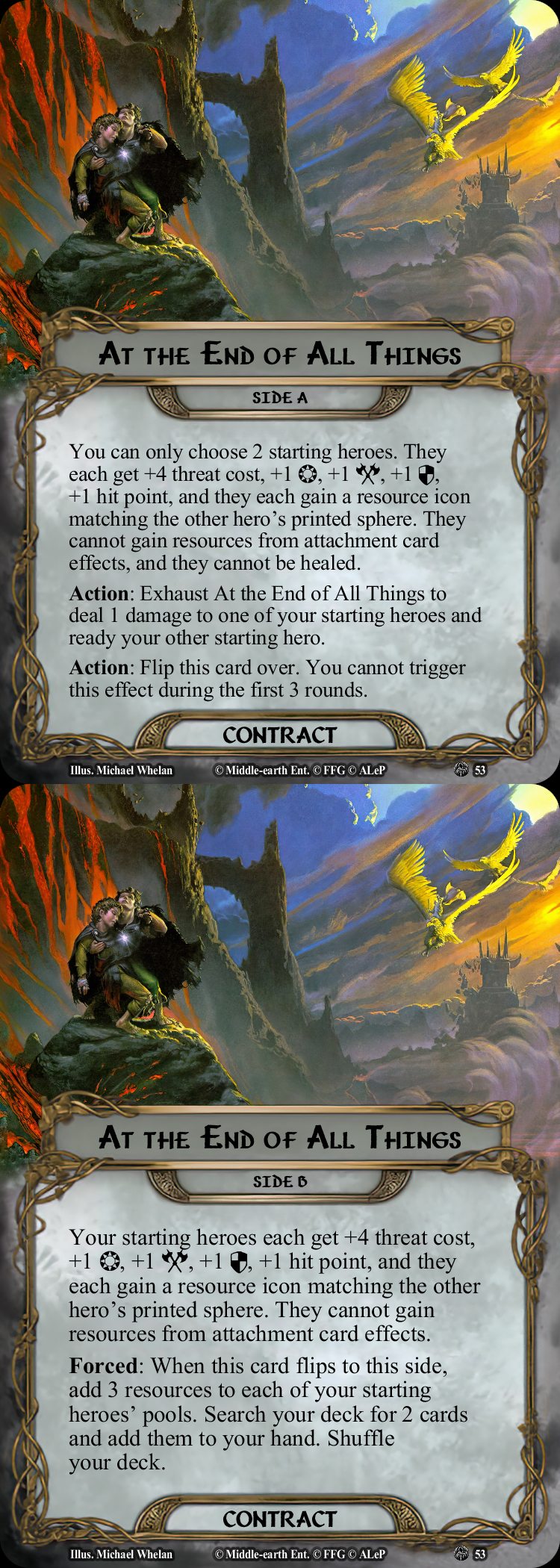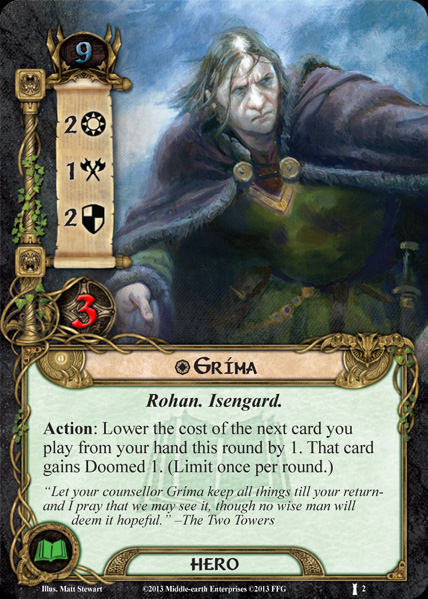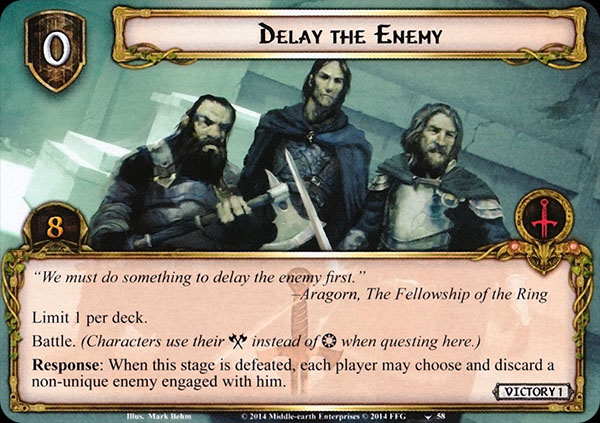Quick summary: A contract that is difficult to make good use of, one which doesn't instantly make things easier like Bond of Friendship, but which can make non-secrecy two-hero decks viable.
Let's start with the downsides: you may only choose two heroes, meaning you get fewer resources and actions per turn, you start out unable to heal, and your heroes cannot gain resources from attachment card effects, so no using anything like Steward of Gondor or gaining resources via Gandalf's Staff.
Let's break down the two heroes. A quick glance through published decks shows that, if you're not running The Grey Wanderer, chances are the deck will have either 3 or, in the case of Bond of Friendship, 4 heroes. The threat cost is worth it when you get more starting actions and more resources each turn. Two-hero decks, which one may think would be the realm of secrecy, have been dead every since Folco Boffin was released, as you can simply include him and, at the worst, be one threat cost better if you immediately discard him, and at best can use his resource(s) and stats until you need to get back into secrecy. If you look through the number of published One Decks, decks able to take on every scenario officially released, the vast majority use Bond of Friendship, because threat is manageable and the extra actions and resources are worth the harsh deckbuilding restrictions.
So, what's the upside? It's certainly not making secrecy more viable, as each starting hero gets +4 threat cost, which is enough to push almost any two-hero combination out of secrecy. Each hero gets a +1/+1/+1/+1 stat boost, which is nice, and you get some inherent resource smoothing. You can recover a hero action by damaging one of your starting heroes to ready the other, though without healing while you're on this side of the contract you do need to be careful.
For the resource smoothing, this enables some very nice plays. If you play with a and a hero, you can select a hero with high innate , have it boosted, and now that hero is in sphere for both A Burning Brand and Armored Destrier, nullifying most shadows and taking care of defensive duties.
Is the +1/+1/+1/+1 boost worth the threat cost and loss of resources? That depends on which heroes you pick. Ideally, you want heroes with some form of built-in action advantage to make use of multiple of these stats. Radagast with 4 and 5, as well as 3 that he doesn't exhaust to quest with, is one example of a hero that uses this contract well. Additionally, the other hero you choose also gains all spheres when playing a creature ally because Radagast gets them printed at that time. Radagast can even use a Wizard Pipe, Hidden Cache, and Messenger Raven to generate resources, and his Staff to apply discounts. Sam Gamgee would be another great choice, provided you can keep your threat low enough to make use of his ability. Of course, cards like Strider or Light of Valinor are essential early cards to ensure you aren't overwhelmed before round 4.
On the fourth round, you can really start hitting back. A 2-card search from your entire deck makes a lot of decks suddenly consistent, and the 6-resource boost puts you ahead in resource terms of where a standard 3-hero deck would be without any acceleration. If your deck relies on a 2-card combo to run in the long-term, you will always be able to find it. It's this 2-card search that really makes the contract worth using at all, and you can build many 2-hero decks that work well with it. That's not to say it's as powerful as some of the official contracts, but I'm not convinced that's a bad thing. Being able to make viable Aragorn-Arwen Undómiel or Elladan-Elrohir decks without making them instantly top-tier is a win in my book.




